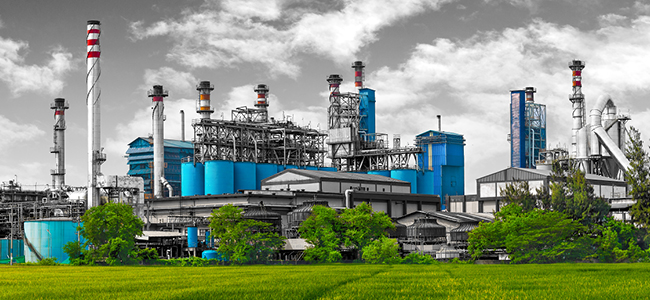
CAN YOU DETECT SEMI-CONDUCTOR GASES LIKE SILICON TETRACHLORIDE AND GERMANIUM CHLORIDE?

Both silicon tetrachloride (SiCl4) and germanium chlorides (GeCl4and GeCl2) can be detected by using a hydrochloric acid (HCl) sensor. When these highly reactive gases are released into the atmosphere, they react with the humidity in the air to produce hydrogen chloride (HCl) gas.
SiCl4 + 2 H2O → SiO2+ 4 HCl
GeCl4 + 2 H2O → GeO2 + 4 HCl
Besides being able to detect the original gas, you are also able to detect the primary HCl reaction by-product when it hits the air. HCl is an extremely toxic and corrosive gas with a short-term exposure limit of 5.0ppm. The other by-products, silicon dioxide (SiO2) and germanium oxide (GeO2), are normally stable, and in moderate concentrations, not very toxic. It’s the HCl that is the big concern.
GfG has a comprehensive list of the EC sensors that are available for use with our products, as well as optional ranges and resolutions along with standard sensors that can detect both germanium chloride and silicon tetrachloride.
You can use the HCl sensor to detect a number of other common semi-conductor gases. For chloride gases, we generally use the HCl sensor and for fluoride gases, we use the HF sensor.
GfG has the ability to support many different sensors. We are also able to customise the range and resolution in order to optimise the sensor for a specific application.
One word of caution about these particular gases. Silicon and germanium are both catalytic LEL sensor poisons. If you need to include an LEL sensor in the same instrument as the HCl sensor used to measure these gases, you should consider using an infrared (IR) LEL sensor. IR LEL sensors are not harmed by exposure to sensor poisons. Also, since hydrogen (H2) is almost always a concern in semi-conductor applications, and hydrogen cannot be measured with an IR LEL sensor, you should also include an electrochemical hydrogen sensor in the same instrument.
For more help and advice, talk to our team:
01376 561 463
sales@gfggas.co.uk
External URL: https://gfggasdetection.co.uk/can-you-detect-semi-conductor-gases-like-silicon-tetrachloride-and-germanium-chloride/
By GfG Gas Detection UK Ltd
381 Views
Recent Posts
- Nofirno Sealing System Successfully Tested for Use in Explosive Environments | CSD & Thorne & Derrick
- North East Children Challenging Industry Committee Meeting
- Cooperation vs True Collaboration in Construction – is the Industry Getting it all Wrong?
- Explore the Impact of Verifying Carbon Capture Technologies
- ITS wins Supplier of the Year at the ISPE UK Affiliate Annual Awards
Back to News >



